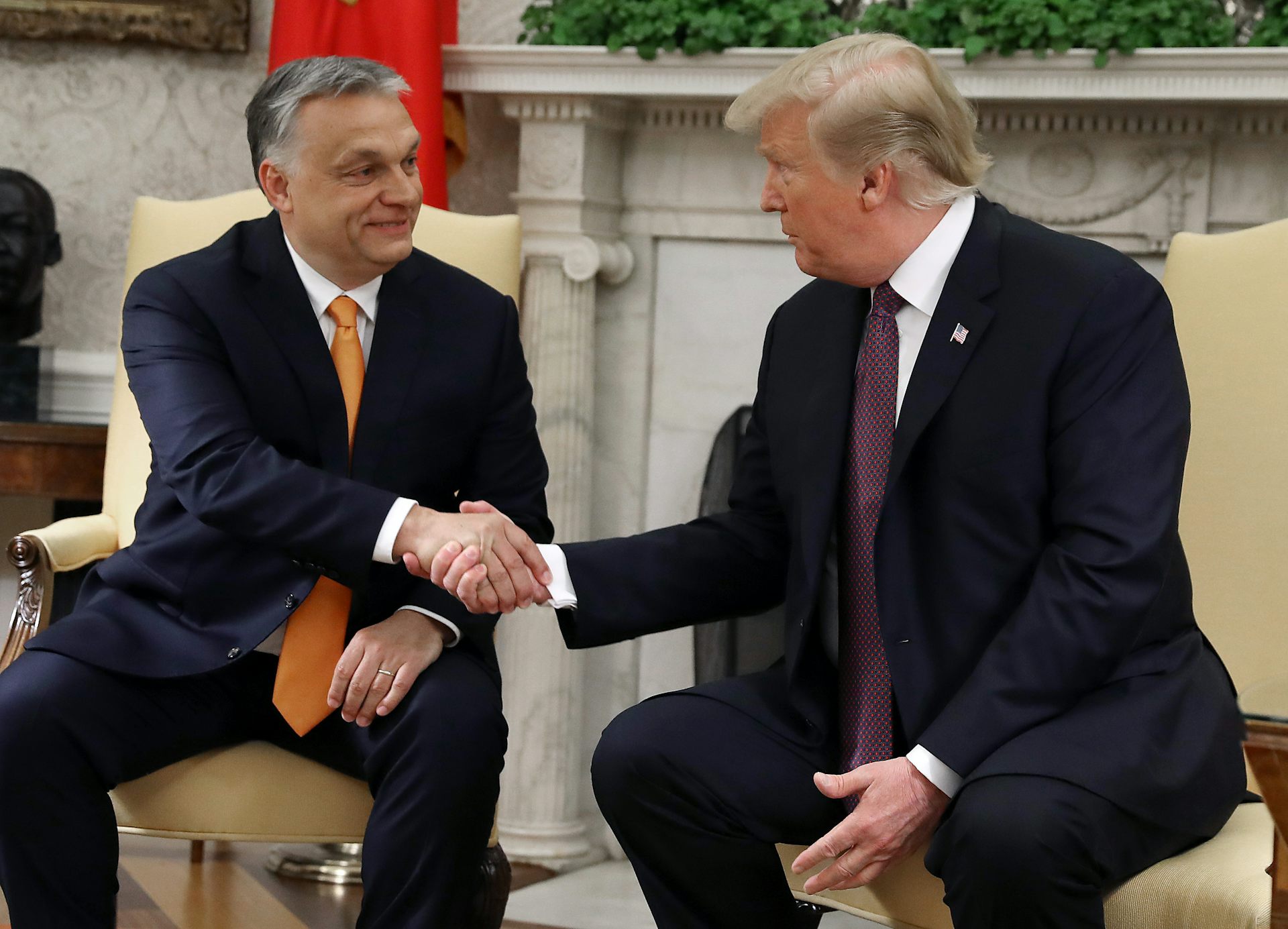Opinion | Europe Needs Its Own Nukes

The United States' new attitude toward Europe has never been communicated as brutally as it was in the Signal chat messages published by The Atlantic. “I just hate bailing Europe out again,” wrote Vice President JD Vance in reference to planned airstrikes against the Houthi militia in Yemen to restore safe shipping routes. Defense Secretary Pete Hegseth replied: “I fully share your loathing of European freeloading. It's pathetic.”
For those in Europe who still hope to rely on the U.S. as a protective power, these messages are a wake-up call. Does this sound like a global superpower ready to send American troops — or deploy nuclear weapons — in the event of a Russian attack on a NATO ally? As doubts grow in Europe over whether the U.S. still feels bound by its Article 5 commitments under the NATO treaty, leading security experts are warning loudly about the possibility that the United States is no longer prepared to come to Europe’s aid. German security expert Carlo Masala of Bundeswehr University has urged NATO to prepare for a potential Russian invasion of the Baltics, with 2029 being discussed in security circles as a possible flashpoint year. René Obermann, chair of Airbus’ supervisory board, predicts an attack on NATO’s eastern flank could come even sooner.
If Washington truly abandons its role as the world’s policeman, Europe would struggle to counter Russian President Vladimir Putin’s army, at least in that time frame. Many European countries, especially Germany, have neglected their own military in recent decades. While Russia has converted everything to a war economy, parts of Europe have only just woken up from the dream of a peaceful world. Military experts proclaim that it will take more than four years to manufacture an arsenal of conventional weapons of the size needed to counter a Russian invasion. While most observers consider a Russian attack on Germany unlikely, even this is not an impossible scenario.
That’s why, to deter Russia, Germany and Europe need their own nuclear shield.
Germany has long been reluctant to have its own nuclear weapons, in part because of its 20th century history of militarism. But since the full-scale Russian invasion of Ukraine, it’s clear that the prospect of a Russian attack on Europe is no longer just theoretical. We need to build up our defenses as quickly as possible. Now, the debate among leaders at the highest levels of power is increasingly not whether or not Germany should arm but what that arrangement will look like.
Nuclear weapons can and should be a part of this rearmament, to save both time and money. The effectiveness of nuclear deterrence is well known from the Cold War and its doctrine of mutually assured destruction. For decades, neither the U.S. nor Russia used nuclear weapons because each knew that the other would retaliate even more devastatingly. Whoever strikes first dies second.
Today, this deterrence is also working for Israel, which calls it the “Samson Option” — a military doctrine inspired by the biblical figure Samson, who brought down a temple’s pillars and killed thousands of his enemies along with himself when he faced certain death. If Israel were to face an existential threat, it is reportedly prepared to use its nuclear weapons and risk triggering a nuclear war. Although Israel has never officially confirmed possessing nuclear weapons, this strategy appears effective — most recently against Iran.
For Germany, developing its own, nationally controlled nuclear weapons is not a realistic option. The country has twice legally renounced nuclear arms: first in 1975 under the Nuclear Non-Proliferation Treaty and again in 1990 through the Two Plus Four Agreement which allowed the reunification of Germany. However, discussions are already underway about Germany participating in France’s nuclear arsenal through shared control mechanisms.
Yet relying solely on France seems risky especially with French nationalist Marine Le Pen, a known Russia sympathizer, or another figure from her nationalist party potentially taking over the Élysée Palace in the near future. A broader European solution also involving Britain’s nuclear capabilities — and possibly Poland as a frontline state — would be far more prudent.
Of course, there are complex questions to address, such as who would exercise command authority over Europe’s nuclear weapons. It is difficult to imagine any French president sharing or relinquishing control over decisions regarding a nuclear strike. But this critical debate must not be dismissed simply because there are no easy answers. There can be no taboos here.
Wolfgang Ischinger, chairman of the Munich Security Conference Foundation Council, recently outlined an unconventional but compelling idea in Die Welt — stationing French nuclear weapons either temporarily or permanently in Germany or Poland. Following the model of Germany’s current nuclear sharing arrangement with the U.S., these weapons could be launched by partner nations using suitable aircraft.
Incoming German Chancellor Friedrich Merz has shown courage and strategic foresight by expressing openness to such considerations after meeting with French President Emmanuel Macron. If Merz succeeds in convincing his future coalition partners — as well as allies in Paris, London and Warsaw — of the necessity for joint European nuclear capabilities, he could continue the legacy of European integration forged by statesmen like former German chancellors Konrad Adenauer and Helmut Kohl. Merz has an opportunity to shape what would become a new European defense union, one no longer dependent on the United States, including for nuclear deterrence.
Europe must finally become capable of defending itself. The leaders of Germany, France, the UK and Poland could even set up a direct hotline to manage the joint arsenal. Just please don’t set it up over Signal.


